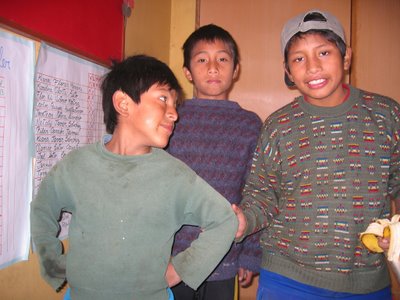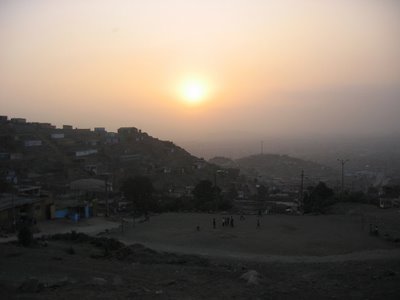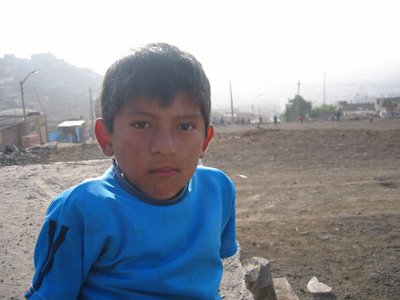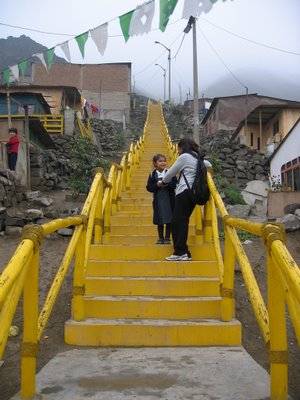Yes, Sunday it is but no matter, time to work.
I was out of commission most of this week due to a nasty bowel problem. On Wednesday afternoon, in celebration of Santa Rosa de Quibes, I ate a baby goat. That night, the goat's mother cursed my stomach and intestines.
Given I was removed from office for two days, I decided to make up time and work today. The taxi oblidged and soon I was in San Gabriel. My purpose: to invite parents to a meeting next Sunday night. The theme would be the current status of the educational workshop and some new goals.
Status: Three times a week, twice a day, there is one educational workshop, called "taller educativo." On average, 30 children ranging from 6 to 12 years of age, enter the concrete building known as "Thomas y Lois." The punctual ones arrive before 3:00p.m. The majority shuffle in thereabouts, and the few gifted with a different sense of time, arrive at 4p.m. The staff consists of me, a teacher named Luzmila, and a number of youth mentors, ranging from 13 to 22 years of age and known as "promotores." The number of promotores on average fails to exceed 3. We try to set up early. Five long white tables accompanied by 6 tiny chairs are neatly ordered like the blank sides of domninos in a domino box.
The children live in the surrounding communities of San Gabriel, Santa Rosa, 28 de Julio, etc. After a short morning of school, they lunch (although, unfortunately, I hear this is a myth in some households) and walk to the
taller with notebooks and pencils in hand. The children attend different grades, and have different teachers. Most attend Ciro Alegria, a government school at the base of the mountain.
The task on most days is to help with homework. The time from 3:00p.m. until 5:00p.m. is spent working with about 5 or 6 kids at a time, trying to provide each with the direction needed to complete their assignments.
It is difficult work.
Some new goals: On Sunday, September 10th, we will inform parents of this work. We will try to make the argument that we must shift away from working on completing homework. In light of that necessary evil, we will hope to use this time and space to go beyond repetative excercises and uninspiring problems. We hope to focus on outfiting our children with the skills necessary to complete the majority of homework on their own.
The dogs are calm on Sunday and remain silent as I climb the dirt, rocks, and yellow concrete stairs to knock on doors. One by one, I approach folk, gracing them with our invitation and emphasizing that beverages will be served.
I got lunch out of it, spaghetti with veins surrounded by meat, and some promises of attendance.










